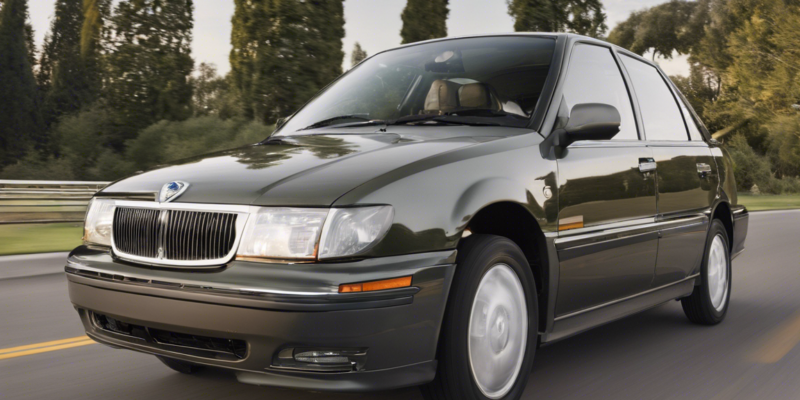Are you in the market for a new car and considering fuel efficiency as a top priority? With the fluctuating prices of fuel and the growing concern for the environment, choosing a vehicle that maximizes fuel efficiency is not only economically beneficial but also environmentally responsible. To help you make an informed decision, we have compiled a list of the top 10 cars with the best fuel efficiency currently available on the market.
What Defines Fuel Efficiency?
Fuel efficiency in vehicles is typically measured in miles per gallon (MPG) for gasoline-powered cars or kilowatt-hours per 100 miles (kWh/100 miles) for electric vehicles. The higher the MPG or the lower the kWh/100 miles, the more fuel-efficient the vehicle is. Factors such as engine design, weight, aerodynamics, driving habits, and use of technology like regenerative braking and start-stop systems all play a role in determining a vehicle’s fuel efficiency.
1. Toyota Prius
Toyota Prius has long been synonymous with fuel efficiency and remains a top choice for eco-conscious drivers. With an impressive EPA-estimated 54 MPG in the city and 50 MPG on the highway, the Prius sets the bar high for hybrid vehicles. Its aerodynamic design, regenerative braking system, and advanced hybrid technology make it a leader in fuel efficiency.
2. Honda Insight
The Honda Insight is another strong contender in the hybrid market, offering an EPA-estimated 55 MPG in the city and 49 MPG on the highway. This stylish and comfortable compact car boasts a spacious interior and a smooth ride while prioritizing fuel economy.
3. Hyundai Ioniq
The Hyundai Ioniq, available as a hybrid, plug-in hybrid, or electric vehicle, offers excellent fuel efficiency across its lineup. The Ioniq Hybrid delivers an impressive 57 MPG in the city and 59 MPG on the highway, making it one of the most fuel-efficient vehicles on the road.
4. Toyota Corolla Hybrid
For those looking for a fuel-efficient sedan, the Toyota Corolla Hybrid is a top choice. With an EPA-estimated 53 MPG in the city and 52 MPG on the highway, the Corolla Hybrid combines the reliability of the Corolla nameplate with hybrid technology for excellent fuel economy.
5. Toyota Camry Hybrid
The Toyota Camry Hybrid offers a blend of fuel efficiency, comfort, and performance. With an EPA-estimated 51 MPG in the city and 53 MPG on the highway, the Camry Hybrid is a great option for those who prioritize fuel savings without compromising on style or features.
6. Kia Niro
The Kia Niro is a versatile and fuel-efficient crossover that comes in hybrid, plug-in hybrid, and electric variants. The Niro Hybrid achieves an EPA-estimated 53 MPG in the city and 48 MPG on the highway, making it a practical choice for those who need extra cargo space without sacrificing fuel efficiency.
7. Chevrolet Bolt EV
Moving into the realm of all-electric vehicles, the Chevrolet Bolt EV stands out for its impressive range and fuel efficiency. With an EPA-estimated 259 miles of range and an efficient electric motor, the Bolt EV offers an energy-efficient and environmentally friendly driving experience.
8. Tesla Model 3
The Tesla Model 3 has disrupted the electric vehicle market with its blend of performance, range, and energy efficiency. With various battery options offering ranges up to 353 miles on a single charge, the Model 3 sets a high standard for electric vehicles in terms of both performance and efficiency.
9. Hyundai Kona Electric
The Hyundai Kona Electric is a compact SUV that offers an impressive 258-mile EPA-estimated range on a single charge. With its efficient electric drivetrain and well-designed interior, the Kona Electric is a compelling option for those seeking a balance of versatility and eco-friendliness.
10. Ford Fusion Energi
The Ford Fusion Energi is a plug-in hybrid sedan that combines the benefits of electric and gasoline power. With an EPA-estimated 103 MPGe (miles per gallon equivalent) in electric mode and 42 MPG in hybrid mode, the Fusion Energi provides flexibility and efficiency for daily driving.
Fuel Efficiency and Beyond
When considering a vehicle for its fuel efficiency, it’s essential to look at the bigger picture. Factors such as driving habits, maintenance, resale value, and overall cost of ownership should also be taken into account to make a well-rounded decision. Additionally, technological advancements in hybrid and electric vehicles continue to push the boundaries of fuel efficiency and environmental sustainability in the automotive industry.
Frequently Asked Questions (FAQs)
1. How do hybrid vehicles achieve higher fuel efficiency?
Hybrid vehicles combine an internal combustion engine with an electric motor and battery. The electric motor assists the engine during acceleration, allowing the engine to operate more efficiently and saving fuel in the process.
2. Are electric vehicles really more fuel-efficient than hybrids?
Yes, electric vehicles are generally more fuel-efficient than hybrids because they run entirely on electricity and do not consume any gasoline. This efficiency is especially notable in city driving where hybrids may still rely on the gasoline engine.
3. What is the difference between MPGe and MPG?
MPGe (miles per gallon equivalent) is used to compare the fuel efficiency of electric vehicles to traditional gasoline vehicles. It represents the distance an electric vehicle can travel on the energy equivalent of one gallon of gasoline. MPG, on the other hand, is used for gasoline-powered vehicles.
4. Do fuel-efficient vehicles cost more upfront?
While some fuel-efficient vehicles may have a higher upfront cost due to their advanced technology, they often save owners money in the long run through lower fuel and maintenance costs. Additionally, government incentives and tax credits may help offset the initial cost of purchasing a fuel-efficient vehicle.
5. How can I improve the fuel efficiency of my current vehicle?
To improve the fuel efficiency of your current vehicle, you can practice eco-driving techniques such as smooth acceleration and deceleration, maintaining proper tire pressure, keeping your vehicle well-maintained, and minimizing idling.
In conclusion, choosing a vehicle with optimal fuel efficiency not only saves you money at the pump but also reduces your carbon footprint and contributes to a sustainable future. Whether you opt for a hybrid, plug-in hybrid, or electric vehicle, the options available today cater to a wide range of preferences and needs while prioritizing fuel economy. Keep in mind your specific requirements and usage patterns when selecting a fuel-efficient vehicle to ensure that it aligns with your lifestyle and budget.


